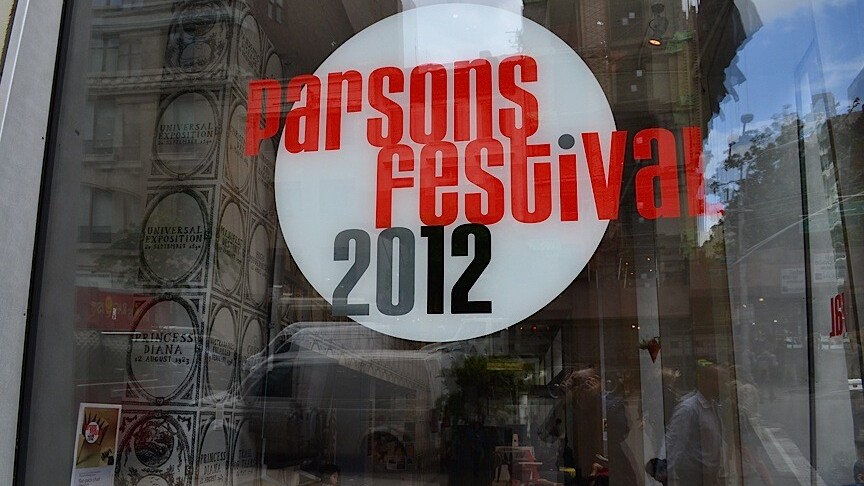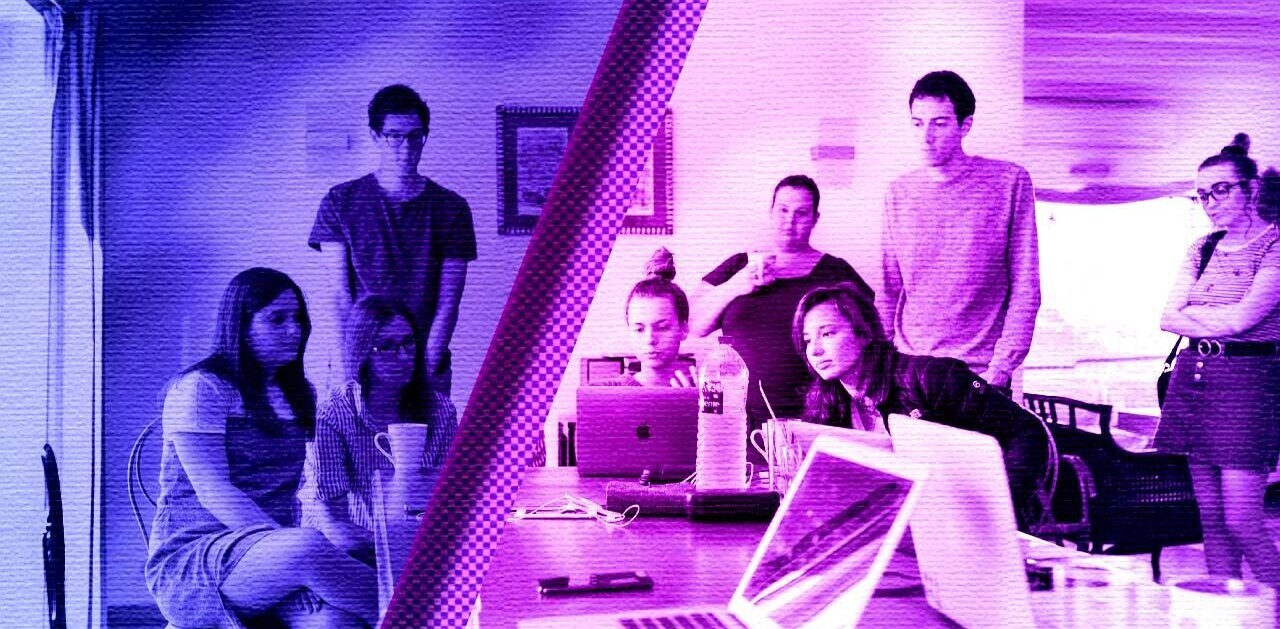
Having attended Parsons before leaving for TNW, I’ve gotten a chance to see first hand the kind of work that this top design school attracts. Unlike what you’d find at tech schools such as MIT, where groundbreaking technology emerges, Parsons favors art and concept. Case in point, graduates of Parons’s Design and Technology Masters Program receive a MFA, not an MS or MBA.
This year at the 2012 Design + Tech Thesis Show, concepts varied greatly; from experimental games to energy generating hardware kits and algorithmically designed clothing for bands. There were quite a lot of projects worth seeing, so we’ll highlight our favorites below:
Find Me A Good One

Bounce

The concept of a bouncing ball is at the heart of Bounce. A user draws shapes that represent sounds and a ball bounces off the shapes. When the ball strikes, a sound is produced. Multiple balls can be set in motion and each ball can be controlled independently. This simple concept turns music production into a playful environment where sketching, riffing and experimenting are fostered.”
➤ Bounce
KNITZTAPE

RoadVision

elegant solutions to our most common and pressing concerns.
As an alternative to our current conceptualization of Augmented Reality, I propose Selective Reality. Instead of superimposing overlays or data, Selective Reality subtly modifies the user’s vision in order draw their attention to and away from those things that are most pertinent within the user’s actual vision.
To illustrate this, I’ve integrated the concepts discussed above into the windshield of a car, perhaps the ideal environment for helping a user maintain focus. By tinting just the portions of the windshield that line up between the driver’s eyes and overly bright lights on the road, such as oncoming headlights, the windshield can reduce the impact of those bright lights in the driver’s vision. This will help the driver see all parts of the road and surrounding areas more clearly—especially those that are darker and could hide potential hazards — making driving more comfortable and safe.”
DontFlushMe

The project consists of Arduino based DIY sensors which measure the sewer level. These sensors share their data, in real-time, via an open information network. The data created by the sensors powers visualization devices, everyday items which change color in response to the status of the sewer system. These devices encourage users to take shorter showers, put off a load of laundry, or if its yellow, let it mellow.”
KinetiKit
From the creators: “KinetiKit is a versatile and powerful plug-and-play kit designed to explore kinetic energy creation which is harvested through routine human motion. This kit uses a small turbine generator to capture the kinetic energy we create during our daily routine and converts it into electrical energy. The small energy harvesting circuit is designed to efficiently harvest that energy and stores it in a battery.”

Blime

[We design] with data, we take audio from the architectonical spaces which our objects inhabit or from the people that wears them and use this data to fuel algorithms to dynamically generate form.”
➤ Blime
These are just 7 of the many awesome projects to come out of this year’s Design + Tech Thesis Show at Parsons. If you’re itching for more, you can see the full list of projects here.
Check out our full Design and Dev channel for more inspiration.
Get the TNW newsletter
Get the most important tech news in your inbox each week.




